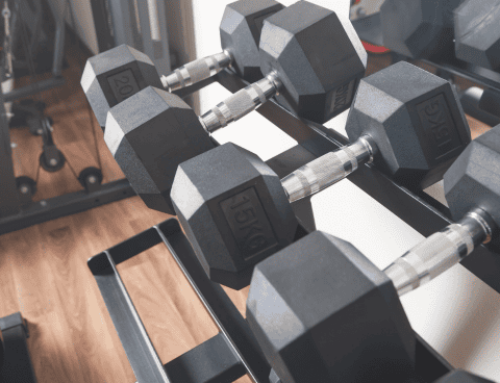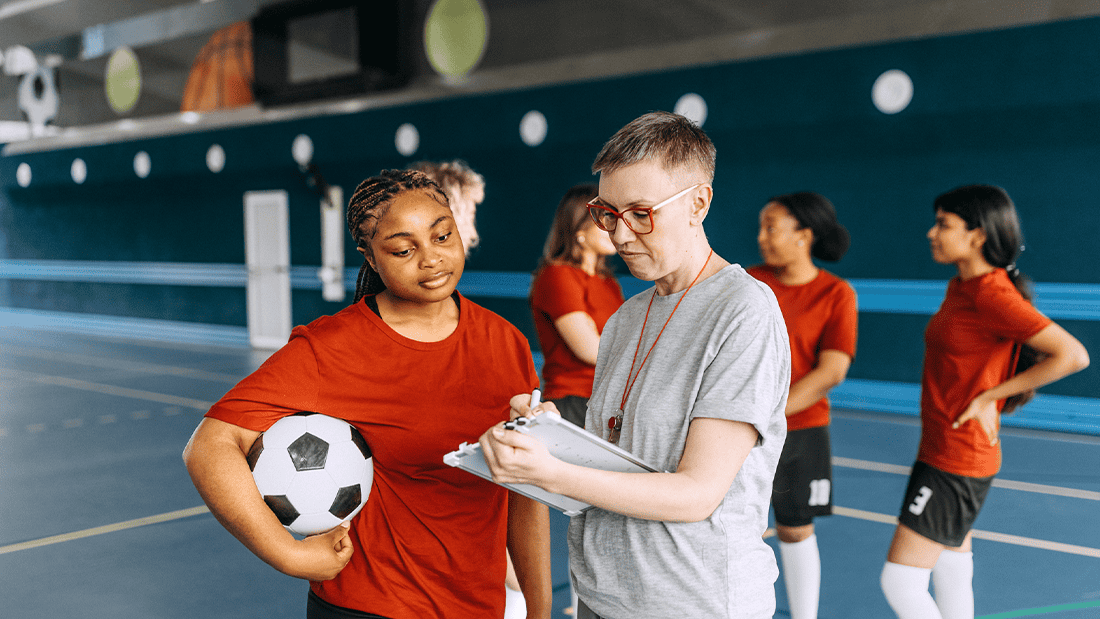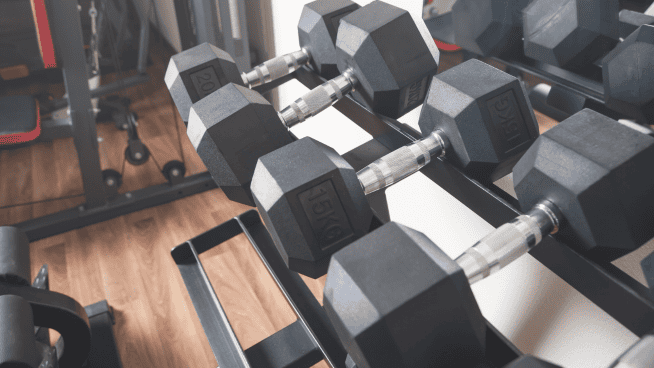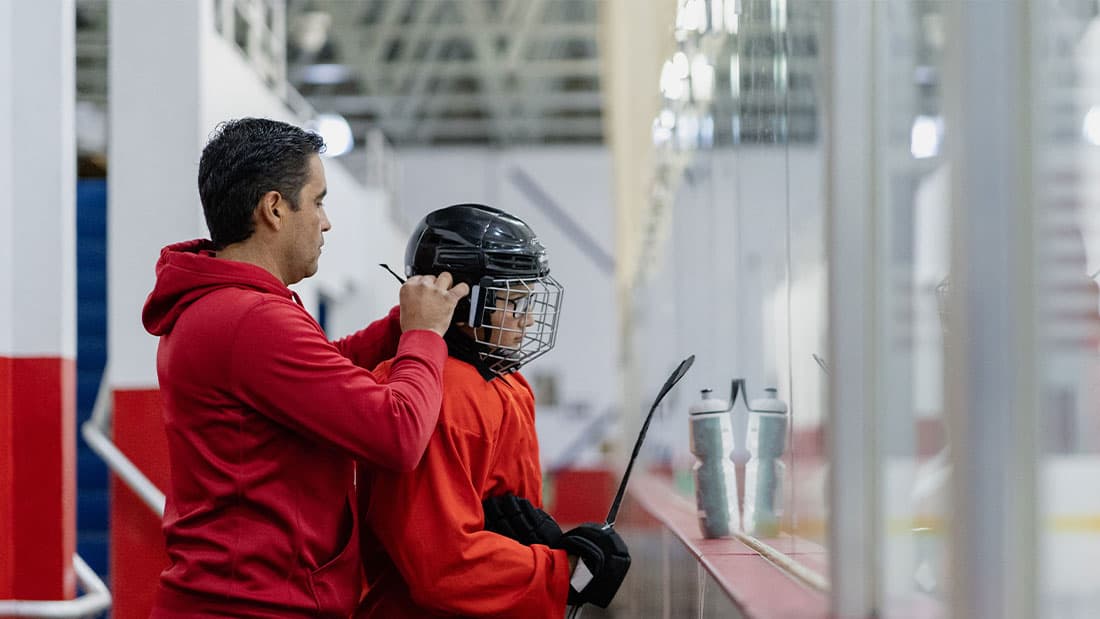Choosing the Right Trainer for Your Youth Athlete
Every parent wants their child to be the next LeBron James.
Or perhaps not even the next Lebron James, but maybe just the next Wes Lunt. Most of you probably have no idea who Wes Lunt is, but the majority of you have definitely heard of Lebron James.
The point being, just good enough to make it at that “next” level. Whatever that “next” level is, it varies between parents and sport. Some view the importance of education, whereas some view the importance of being on the nation’s best college football team (we all know it’s Alabama). The point being is that you want your child to be good at sports. Probably mostly for their child’s sake, but also secretly for your sake. Not only will your kid create new friends and leadership skills through sport, but they will also have the opportunity to get a college scholarship. The latter being a big concern for parents ($$$).
Whether a parent wants to admit it or not, they do not inherently want to pay for their child’s college education, nor do they want their child to pay for their own college education and fall into debt. So a college scholarship sounds like a pretty darn good idea. This leads us down the path of youth sport and strength training, and the booming industry that it is. Youth strength training has the potential to make, or break your child’s athletic future.
What is Youth Strength Training?
Every year millions and millions of dollars are spent on parents outsourcing private lessons and strength training for their youth children. In hopes that they will outwork the other children in the area, and become the best athlete in their region. Which theoretically will win them that college scholarship. This makes total sense from the outside, seek out a professional-strength trainer, pay a little more out of pocket now, in hopes that your return on investment will present itself in the form of a future college scholarship.
The only problem with this plan is how do you know the professional trainer you are outsourcing is the “real deal”? You are trusting your child’s future, college scholarship, and future financial (in)stability with one individual (or a group). Unless you are up-to-date on the most cutting edge strength training methods and philosophies, chances are you won’t know if the professional is providing the best possible service for your child. Below I have listed solutions to this epidemic in youth sports training. These 4 solutions are things parents should look for and implement in their quest for optimizing their child’s athletic future.
The 4 Solutions
- Ask the Right Questions
- Watch the Training Sessions
- Do Your Homework
- Long-Term Goals, Not Short-Term (*this one is key)
Ask the Right Questions: This one is easier than you might think. This simply requires you speak with the professional trainer and ask what they are doing with your youth athlete. Ask them why they are doing a certain exercise. Ask them why they are training speed in that direction. Ask them which exercises are best for your child’s sports. Ask them what they think about strength training in youth athletes. Ask them how much experience they have had working with youth athletes. Ask them what is the most important objective in working with your youth athlete. Ask them if they stay up-to-date on the current training methods for youth athletes. Have they ever heard of Long-term Athletic Development?
Watch the Training Sessions: As a trainer, this is one of the things I liked to see parents do. Not only did it keep me accountable and engaged the entire training session, but it also allows the parents to understand what their youth athletes are doing and need to work on. So hopefully, they can spend a little extra time outside of the training session at home developing the skills needed.
“9 times out of 10, the parent that is present in all training sessions has the more athletic child.”
As a parent, watching your child’s training session is the key to ensuring your child is getting the best possible output from the professional trainer. I know this because as a trainer that has worked the grind of all-day client after client, it can be easy to dog a training session because you are exhausted. This is especially easy when working with youth athletes because they do not know whether a trainer is providing effort, or if the right training methods are being applied. As a parent, you hopefully have a little better understanding, and if not, at least you know when the trainer is just wasting time.
Do Your Homework: No I am not asking you to know everything about strength and conditioning, but I am asking you to look at the work of some of the best youth strength coaches and see if the trainer you hired is doing some of the same things. Some great people to look at in the world of youth sports training are Mike Boyle, Jeremy Frisch, and Zach Dechant. This can be as simple as following them on their social media platforms (I know you all have Facebook, my 81-yr old grandmother does) and see what they are talking about on a daily, or weekly basis. A parent that has no clue about strength training can learn a lot just by following the right people on social media and using a little bit of critical thinking.
Long-Term Goals, Not Short-Term: This is possibly the most important one of them all. Long-term athletic development is a term we like to use a lot in the strength and conditioning world when it comes to laying the proper foundation for youth athletes. It involves the youth athlete developing strength in all planes of movement (i.e. play multiple sports). A phrase coined by Zach Dechant, “Movement Over Maxes”; in short, this phrase means that a movement should never be compromised for the sake of lifting a lot of weight (i.e. 1-rep max). Your youth athlete will not be competing in a powerlifting competition any time soon. With that being said, make sure the strength professional you seek out is emphasizing proper movement and technique over ANYTHING else. Remember that nobody offers a college scholarship to a 12-year old. They do offer college scholarships to high school athletes that have excellent athletic ability and body control. Both of which can be improved (overtime) by the right trainer.
Utilizing Play to Accomplish Long-Term Athletic Development
Some great youth strength trainers can accomplish movement patterns through the use of play. Keeping things light-hearted and enjoyable for youth athletes is part of the biggest struggle in youth sports training, but is also the key to keeping young athletes engaged. Your child should have fun during the training sessions and want to come back. If your youth athlete is dreading going to the next training session, it might be time to find a different strength training professional.
Share This Article
I hope you found this article worth the read! I am very passionate about sport-science and strength training. Please give this article a share on social media if you liked it. I would love to help other people like yourself develop the necessary tools to become the best coach, athlete, or practitioner they can be!
If you have any more questions feel free to give me a follow and send me a direct message on Instagram @strength2.speed or check out my website strength2speed.com
RECOMMENDED FOR YOU
MOST POPULAR
Choosing the Right Trainer for Your Youth Athlete
Every parent wants their child to be the next LeBron James.
Or perhaps not even the next Lebron James, but maybe just the next Wes Lunt. Most of you probably have no idea who Wes Lunt is, but the majority of you have definitely heard of Lebron James.
The point being, just good enough to make it at that “next” level. Whatever that “next” level is, it varies between parents and sport. Some view the importance of education, whereas some view the importance of being on the nation’s best college football team (we all know it’s Alabama). The point being is that you want your child to be good at sports. Probably mostly for their child’s sake, but also secretly for your sake. Not only will your kid create new friends and leadership skills through sport, but they will also have the opportunity to get a college scholarship. The latter being a big concern for parents ($$$).
Whether a parent wants to admit it or not, they do not inherently want to pay for their child’s college education, nor do they want their child to pay for their own college education and fall into debt. So a college scholarship sounds like a pretty darn good idea. This leads us down the path of youth sport and strength training, and the booming industry that it is. Youth strength training has the potential to make, or break your child’s athletic future.
What is Youth Strength Training?
Every year millions and millions of dollars are spent on parents outsourcing private lessons and strength training for their youth children. In hopes that they will outwork the other children in the area, and become the best athlete in their region. Which theoretically will win them that college scholarship. This makes total sense from the outside, seek out a professional-strength trainer, pay a little more out of pocket now, in hopes that your return on investment will present itself in the form of a future college scholarship.
The only problem with this plan is how do you know the professional trainer you are outsourcing is the “real deal”? You are trusting your child’s future, college scholarship, and future financial (in)stability with one individual (or a group). Unless you are up-to-date on the most cutting edge strength training methods and philosophies, chances are you won’t know if the professional is providing the best possible service for your child. Below I have listed solutions to this epidemic in youth sports training. These 4 solutions are things parents should look for and implement in their quest for optimizing their child’s athletic future.
The 4 Solutions
- Ask the Right Questions
- Watch the Training Sessions
- Do Your Homework
- Long-Term Goals, Not Short-Term (*this one is key)
Ask the Right Questions: This one is easier than you might think. This simply requires you speak with the professional trainer and ask what they are doing with your youth athlete. Ask them why they are doing a certain exercise. Ask them why they are training speed in that direction. Ask them which exercises are best for your child’s sports. Ask them what they think about strength training in youth athletes. Ask them how much experience they have had working with youth athletes. Ask them what is the most important objective in working with your youth athlete. Ask them if they stay up-to-date on the current training methods for youth athletes. Have they ever heard of Long-term Athletic Development?
Watch the Training Sessions: As a trainer, this is one of the things I liked to see parents do. Not only did it keep me accountable and engaged the entire training session, but it also allows the parents to understand what their youth athletes are doing and need to work on. So hopefully, they can spend a little extra time outside of the training session at home developing the skills needed.
“9 times out of 10, the parent that is present in all training sessions has the more athletic child.”
As a parent, watching your child’s training session is the key to ensuring your child is getting the best possible output from the professional trainer. I know this because as a trainer that has worked the grind of all-day client after client, it can be easy to dog a training session because you are exhausted. This is especially easy when working with youth athletes because they do not know whether a trainer is providing effort, or if the right training methods are being applied. As a parent, you hopefully have a little better understanding, and if not, at least you know when the trainer is just wasting time.
Do Your Homework: No I am not asking you to know everything about strength and conditioning, but I am asking you to look at the work of some of the best youth strength coaches and see if the trainer you hired is doing some of the same things. Some great people to look at in the world of youth sports training are Mike Boyle, Jeremy Frisch, and Zach Dechant. This can be as simple as following them on their social media platforms (I know you all have Facebook, my 81-yr old grandmother does) and see what they are talking about on a daily, or weekly basis. A parent that has no clue about strength training can learn a lot just by following the right people on social media and using a little bit of critical thinking.
Long-Term Goals, Not Short-Term: This is possibly the most important one of them all. Long-term athletic development is a term we like to use a lot in the strength and conditioning world when it comes to laying the proper foundation for youth athletes. It involves the youth athlete developing strength in all planes of movement (i.e. play multiple sports). A phrase coined by Zach Dechant, “Movement Over Maxes”; in short, this phrase means that a movement should never be compromised for the sake of lifting a lot of weight (i.e. 1-rep max). Your youth athlete will not be competing in a powerlifting competition any time soon. With that being said, make sure the strength professional you seek out is emphasizing proper movement and technique over ANYTHING else. Remember that nobody offers a college scholarship to a 12-year old. They do offer college scholarships to high school athletes that have excellent athletic ability and body control. Both of which can be improved (overtime) by the right trainer.
Utilizing Play to Accomplish Long-Term Athletic Development
Some great youth strength trainers can accomplish movement patterns through the use of play. Keeping things light-hearted and enjoyable for youth athletes is part of the biggest struggle in youth sports training, but is also the key to keeping young athletes engaged. Your child should have fun during the training sessions and want to come back. If your youth athlete is dreading going to the next training session, it might be time to find a different strength training professional.
Share This Article
I hope you found this article worth the read! I am very passionate about sport-science and strength training. Please give this article a share on social media if you liked it. I would love to help other people like yourself develop the necessary tools to become the best coach, athlete, or practitioner they can be!
If you have any more questions feel free to give me a follow and send me a direct message on Instagram @strength2.speed or check out my website strength2speed.com











